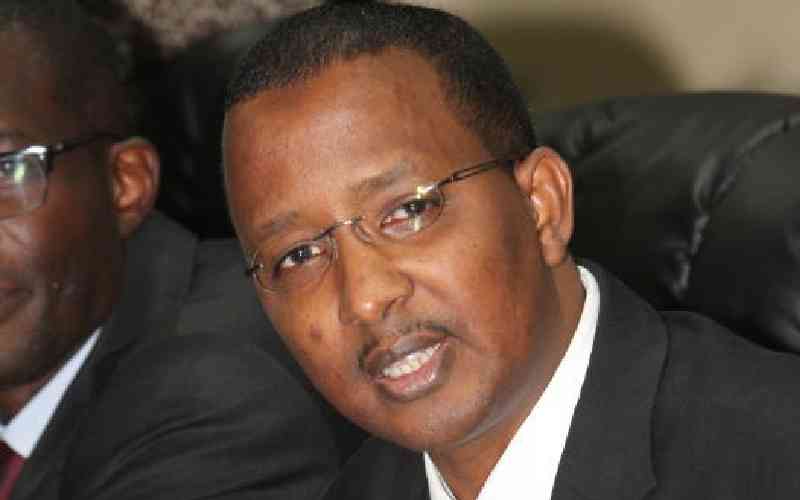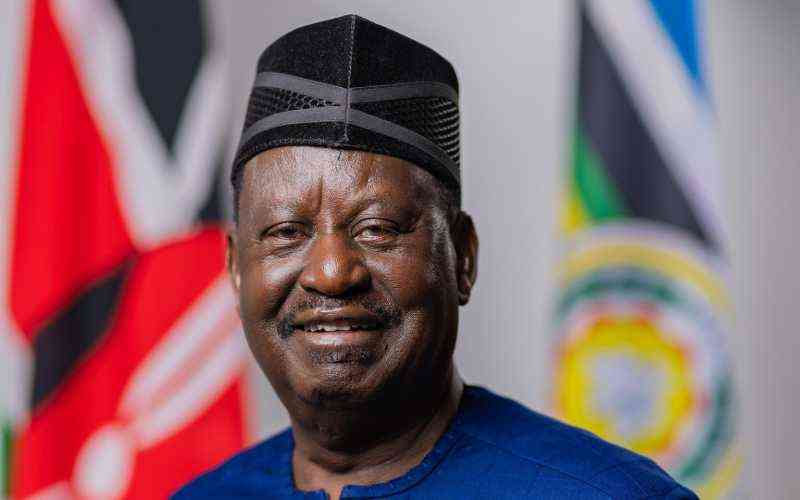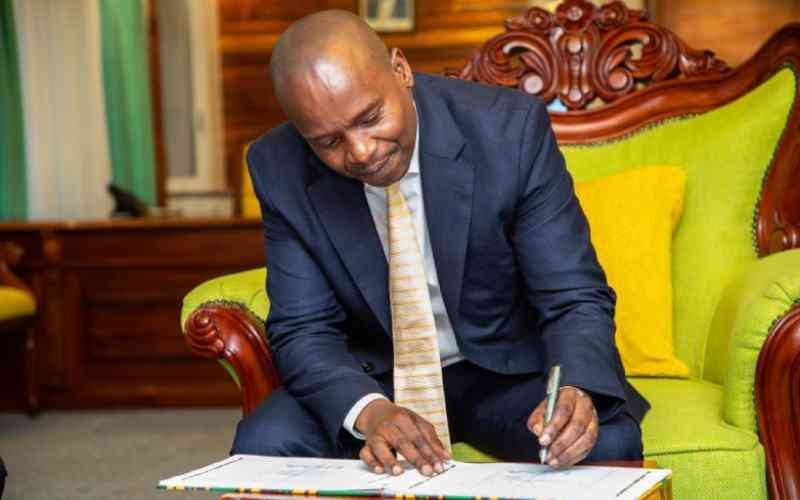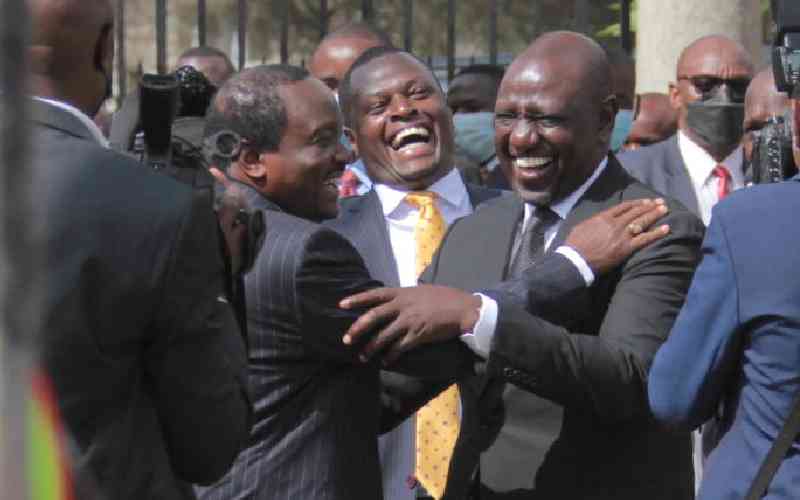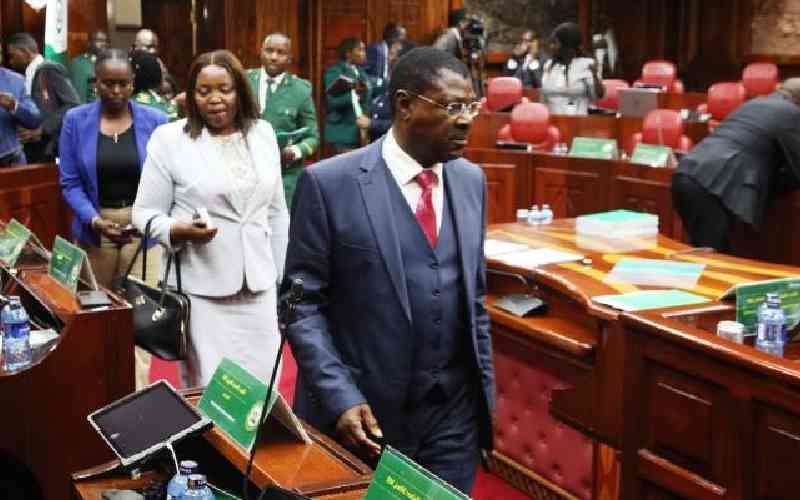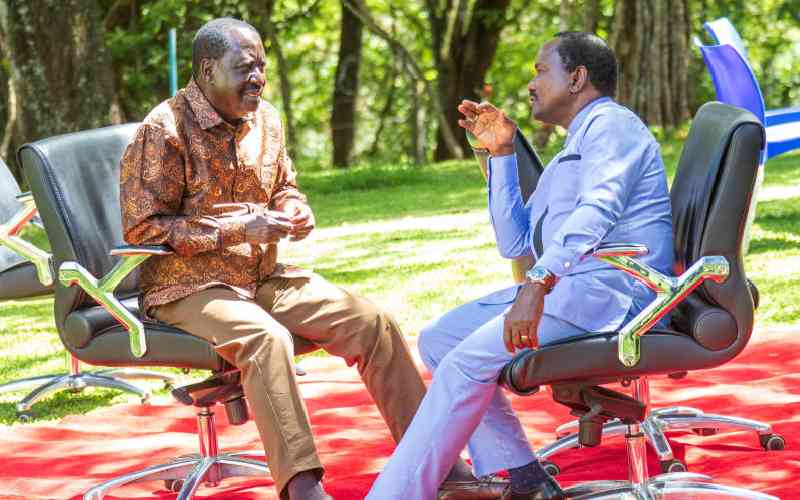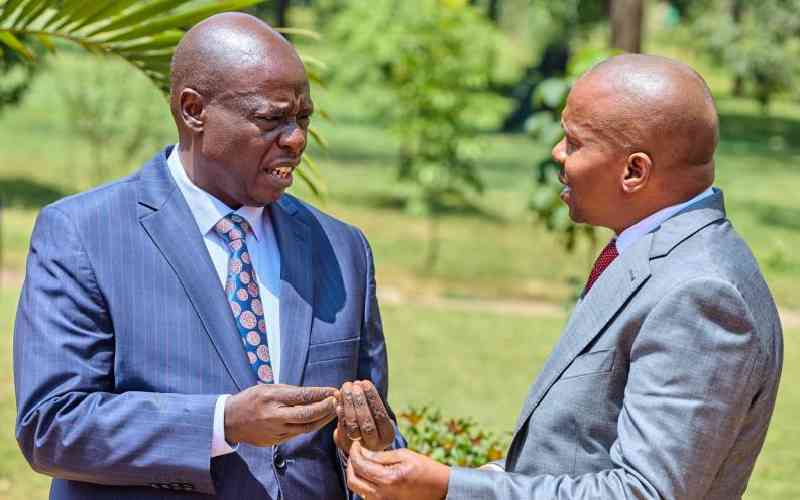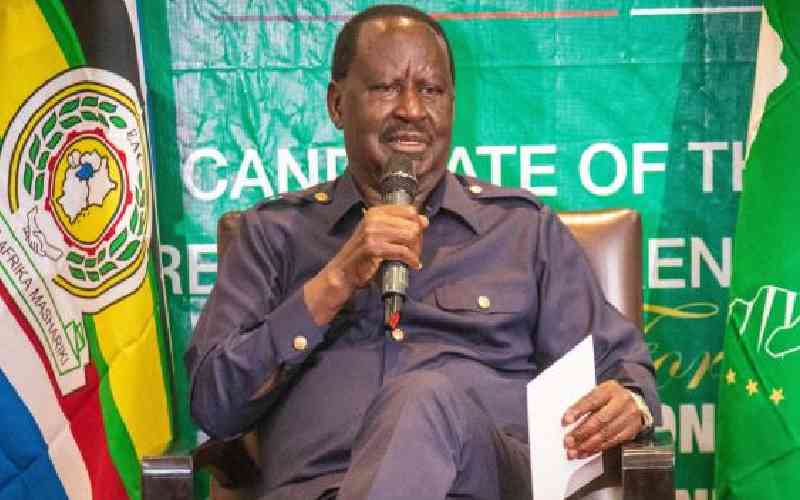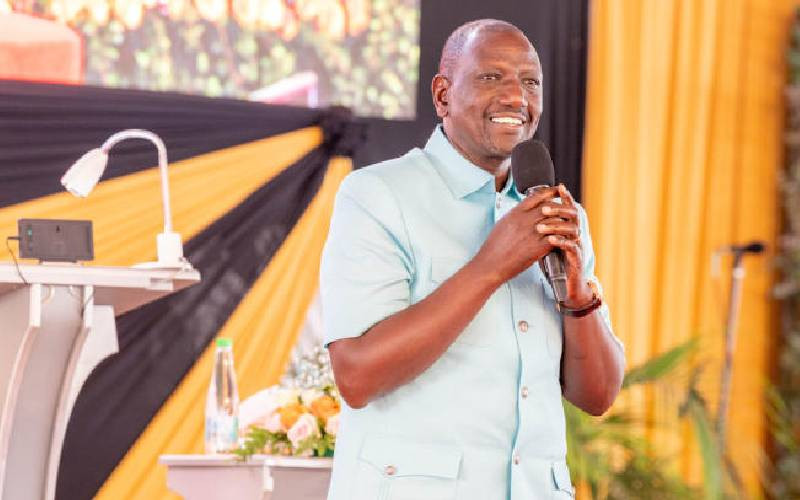
If President William Ruto were to grade his predecessor Uhuru Kenyatta's performance as Head of State, the former president would score dismally.
According to Ruto, Uhuru did nothing worth emulating, especially after their fallout in their second term in office, when he 'abandoned' the Big 4 agenda.
The projects the president said were abandoned, were infrastructure works Uhuru initiated that he (Ruto) has recently been accused of relaunching.
The president has slammed his former boss's policies at every turn. Uhuru's fuel subsidies, for instance, made no sense to Ruto, owing to the resulting burden on the taxpayer.
Neither did Uhuru's handshake with opposition leader Raila Odinga nor the resulting push to amend the Constitution "to create more positions for the elite."
The former president was also wrong to 'weaponise' the criminal justice system to silence opponents, Ruto also said.
But nearly a year since he assumed office, Ruto is essentially checking boxes from Uhuru's guidebook, implementing policies he spent his entire presidential campaign mocking. He is literally walking in Uhuru's footsteps.
- Ruto remains mute as healthcare crisis worsens
- Government calls on KMPDU to end strike
- Ruto going against KK manifesto, unions say
- Go back to work, Ruto tells striking doctors
Keep Reading
"Ruto's policies are Uhuru's. They are the ones he promised to do away with," says university lecturer Gitile Naituli. "They are cut from the same cloth." Prof Naituli argues that the continuity can be traced to the exploitative and conservative colonial home-guard system he says Kenya's political class inherited that "intends to keep Kenyans colonised."
In the latest fuel review, the government reinstated the subsidy Ruto declared unsustainable, as it fell in what he termed 'consumption subsidies'. Such measures were never in his plan, and he spent his inaugural speech explaining why.
"On fuel subsidy alone, the taxpayers have spent a total of Sh144 billion, a whooping Sh60 billion in the last four months. If the subsidy continues to the end of the financial year, it will cost the taxpayer Sh280 billion, equivalent to the entire national government development budget," Ruto said in September last year.
The new subsidy comes amid high food and commodity prices. Without the new measures, the cost of petrol would have shot up beyond the Sh200 mark, promising higher living cost in effect.
As Kenyans learnt of the subsidy, the National Assembly Majority Leader Kimani Ichung'wah was tabling a motion to anchor the dialogue between Raila and Ruto in law.
The 10-member team and a technical committee have deliberated on issues the government and the opposition want resolved.
The team mirrors the Building Bridges Initiative (BBI) team set up by Uhuru and Raila after their 2018 handshake that steered a constitutional amendment process Ruto vehemently opposed.
The new committee, co-chaired by Ichung'wah and Wiper leader Kalonzo Musyoka, resulted from a truce between Raila and Ruto, mediated by former Nigeria President Olusegun Obasanjo.
It will discuss, among other issues, a memorandum by the president sent to Parliament last year that proposes significant changes to the Constitution. They include the introduction of the office of the leader of the official opposition and the 'embedding' of the office of prime cabinet secretary.
The committee will also discuss new nominative positions to accommodate women and attain the two-thirds gender principle in Parliament.
In many ways, Ruto's proposals are a slap in the face of his mockery of the BBI process, which he asserted was only meant to 'create positions' for a few elites.
By creating the opposition leader's office and that of the prime cabinet secretary, Ruto is piling on taxpayers the financial burden he said the BBI would.
His botched appointment of 50 Chief Administrative Secretaries (CASs), most of whom were allies who lost in the last election, would have bloated the Executive. Ruto borrowed the idea of CASs from Uhuru, who did not appoint as many. Ruto's proposal on meeting the two-thirds gender principle is also curious, given his Cabinet - just like Uhuru's - does not meet the test. Neither did Ruto honour the said provision when appointing principal secretaries.
Raila's Azimio la Umoja One Kenya wants the committee to discuss the high cost of living, and the Finance Act 2023 repealed. The coalition argues that the Act introduces punitive taxes that will sink Kenyans deeper into poverty, faulting the 16 per cent value-added tax (VAT) on fuel and the 1.5 per cent housing tax.
When Uhuru proposed a similar VAT on fuel during his tenure, Ruto's allies lashed out, stating that it would hurt the economy. Uhuru's housing levy was also met with the same kind of fury.
The president has defended the housing tax, initially proposed at 3 per cent, saying it will shore up employment and achieve affordable housing. He believes his tax measures will help raise more revenue for a nation mired in a Sh9 trillion debt. Ruto, who accused Uhuru of reckless borrowing, promised to pause debt.
"Ruto the candidate was our knight in shining armour, who promised to dismantle the dynasty. Ruto the president is Uhuru Phase Two, but more extreme," Prof Naituli notes.
 The Standard Group Plc is a multi-media organization with investments in media platforms spanning newspaper print
operations, television, radio broadcasting, digital and online services. The Standard Group is recognized as a
leading multi-media house in Kenya with a key influence in matters of national and international interest.
The Standard Group Plc is a multi-media organization with investments in media platforms spanning newspaper print
operations, television, radio broadcasting, digital and online services. The Standard Group is recognized as a
leading multi-media house in Kenya with a key influence in matters of national and international interest.

